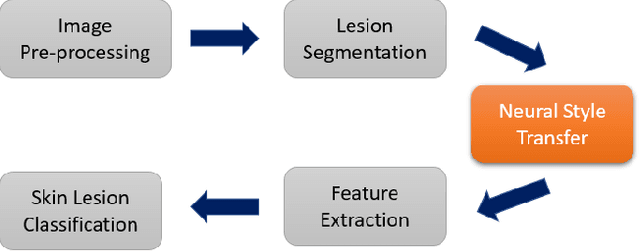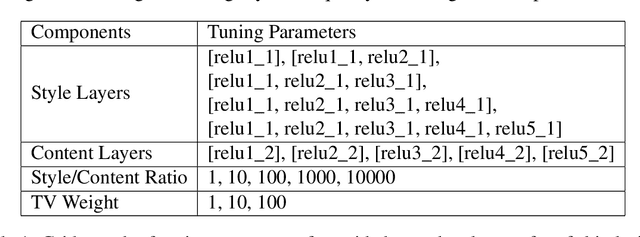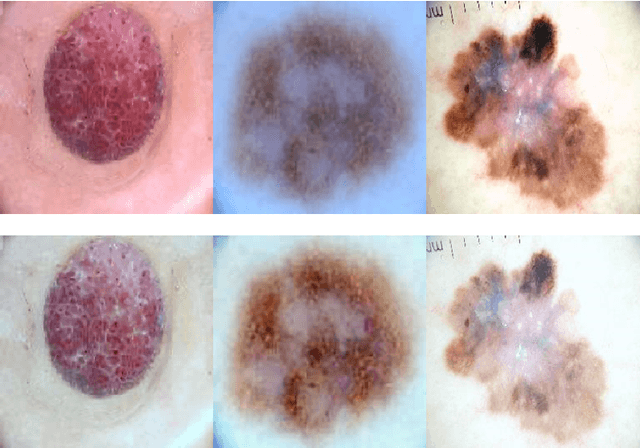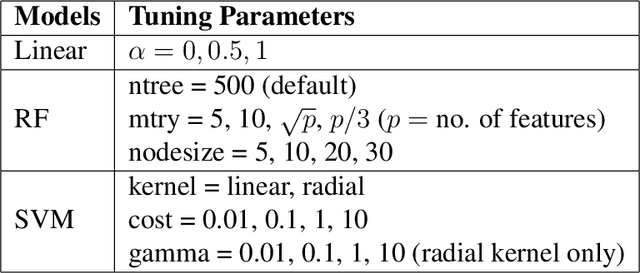Dermoscopic Image Classification with Neural Style Transfer
Paper and Code
May 31, 2021



Skin cancer, the most commonly found human malignancy, is primarily diagnosed visually via dermoscopic analysis, biopsy, and histopathological examination. However, unlike other types of cancer, automated image classification of skin lesions is deemed more challenging due to the irregularity and variability in the lesions' appearances. In this work, we propose an adaptation of the Neural Style Transfer (NST) as a novel image pre-processing step for skin lesion classification problems. We represent each dermoscopic image as the style image and transfer the style of the lesion onto a homogeneous content image. This transfers the main variability of each lesion onto the same localized region, which allows us to integrate the generated images together and extract latent, low-rank style features via tensor decomposition. We train and cross-validate our model on a dermoscopic data set collected and preprocessed from the International Skin Imaging Collaboration (ISIC) database. We show that the classification performance based on the extracted tensor features using the style-transferred images significantly outperforms that of the raw images by more than 10%, and is also competitive with well-studied, pre-trained CNN models through transfer learning. Additionally, the tensor decomposition further identifies latent style clusters, which may provide clinical interpretation and insights.
 Add to Chrome
Add to Chrome Add to Firefox
Add to Firefox Add to Edge
Add to Edge